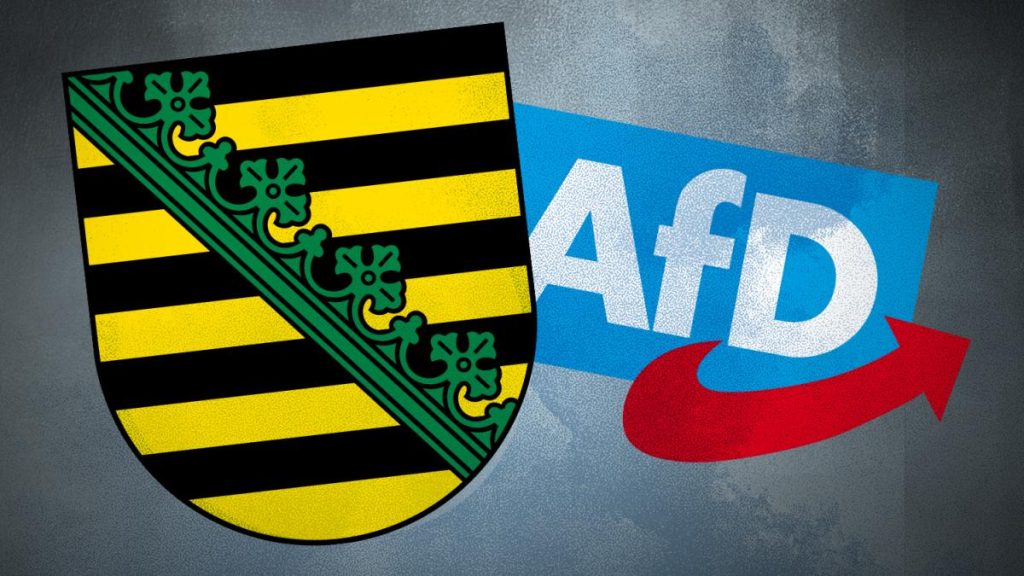Several prominent AfD candidates for the upcoming state parliament elections in Saxony are facing serious allegations, as revealed by a WELT AM SONNTAG investigation. An expert states that many candidates from the regional branch are staunch right-wing extremists. The AfD is currently leading in the polls for the September 1st election, and could potentially send more representatives to parliament than ever before. However, the party is experiencing controversy as several candidates are being accused of misconduct.
One example highlighted in the investigation is Jörg Dornau, an AfD member of the Saxony state parliament, who has been involved in a large agricultural business in Belarus since 2020 without disclosing this information to the parliament president as required by law. Additionally, Dornau has expressed support for the dictatorship of Belarusian President Alexander Lukashenko. Another candidate, Lars Kuppi, a police officer and member of the state parliament, was convicted of defamation in 2018 for making threatening remarks about a colleague. Kuppi has also faced disciplinary consequences for associating with a well-known neo-Nazi.
Despite facing internal disciplinary proceedings for violating party principles, another candidate, Roland Ulbrich, is still running for office with the support of the Saxony branch. Ulbrich’s reference to a Nazi law in a previous statement has prompted an investigation by the Leipzig public prosecutor’s office into possible criminal offenses. The controversy surrounding the party’s candidates further deepens with allegations against Andreas Harlaß, a former journalist who allegedly brought a cartridge-shaped brass piece engraved with a banned SS slogan to the newsroom.
Another candidate, Lars Franke, has come under scrutiny for his financial support of a neo-Nazi martial artist’s funeral and his tattoo of a symbol associated with extremists on his arm. Despite these revelations, Franke denies any political conversations with the deceased individual. Experts have weighed in on the situation, with one professor cautioning against entrusting the fate of German states to AfD politicians, citing concerns over the party’s ideologies and potential dangers. The party’s controversial candidates have drawn criticism from various quarters, with accusations of violence and glorification of Nazism raising alarms about the party’s extremist tendencies.
In response to these findings, experts have expressed concern over the implications of such radical views within the AfD’s ranks. The presence of individuals with controversial backgrounds and ties to extremist ideologies raises questions about the party’s commitment to democratic principles and the impact of their policies on society. As allegations of misconduct and associations with extremist groups continue to surface, the AfD’s reputation and credibility are increasingly called into question, prompting a closer examination of the party’s leadership and values. The upcoming state elections in Saxony will serve as a crucial test of public sentiment towards the AfD and its controversial candidates.


